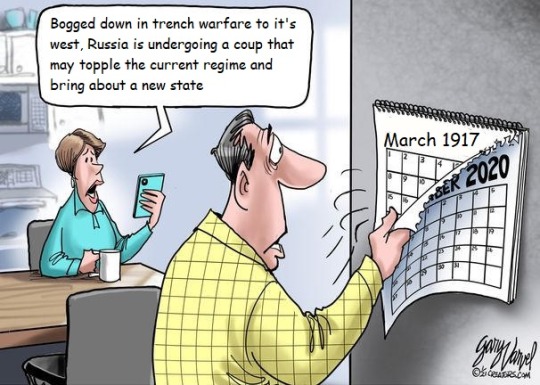#coup
Text
Someone staged a coup in England and it was renamed Party-Land, the national anthem was changed to "Holding Out for a Hero" and its flag was a Pride version of the English flag with party flags.
2K notes
·
View notes
Photo

this one goes out to my little homie Coup who couldn’t make it to 2023. the fireworks weren’t as bad this year for some reason, but i talked shit about the people lighting explosives in the middle of a tree-filled residential area full of easily freaked out wildlife twice as hard for you.
happy new years to all! y’all better survive!
#cat#animal death#cancer#Coup#new years#comics#by the end he couldn't hop up into his drawer and he refused help so at least he gets to have his main safe spot back
1K notes
·
View notes
Text

Venceremos—Solidarität mit dem Volk Chiles
GDR stamp commemorating Chilean president Salvador Allende (1908–1973)
#Chile#Salvador Allende#1973#9/11#remember 9/11#DDR#GDR#RDA#postage stamp#selo postal#postzegel#Briefmarke#почтовая марка#coup#golpe#Putsch#solidarity#solidaridade#solidaridad#solidariteit
275 notes
·
View notes
Text

"They violate human rights!"
Soviet Union
1977
#propaganda#poster#vintage#imperialism#capitalism#communism#socialism#anti american#america#pinochet#coup#soviet union#russia#ussr#us#racism#cia#somoza#latin america#human rights
234 notes
·
View notes
Photo
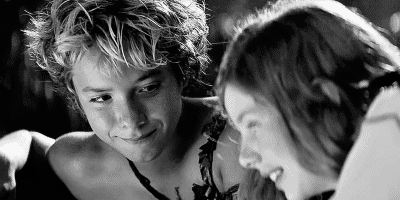
966 notes
·
View notes
Text
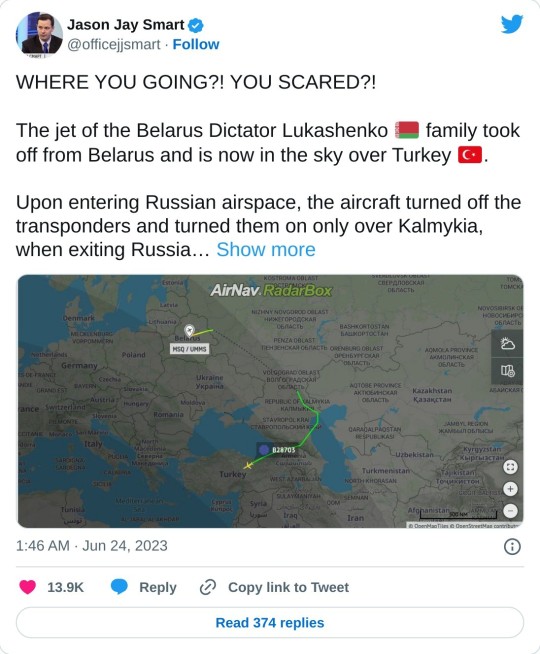

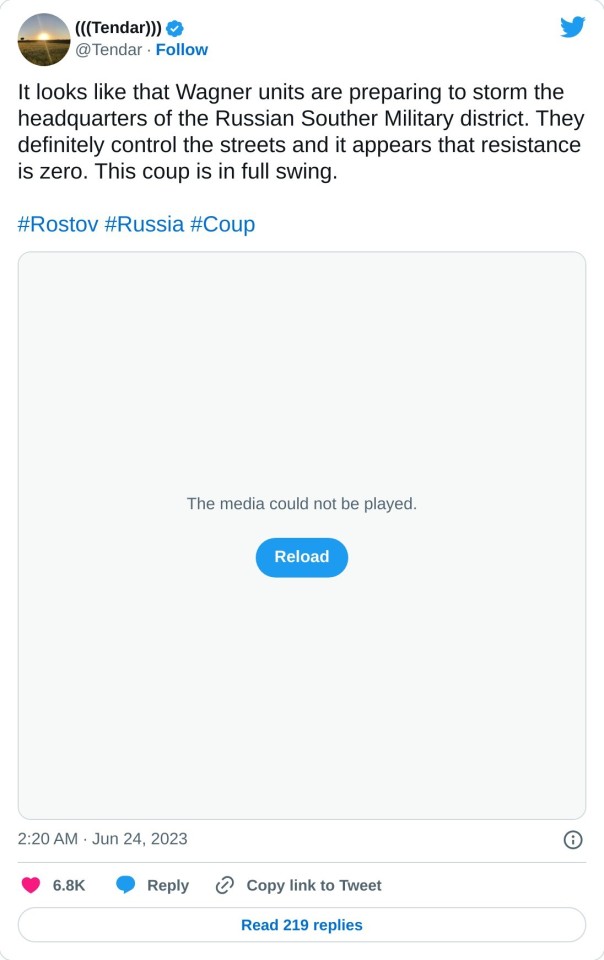

shit is getting really fucking interesting right now.
272 notes
·
View notes
Text
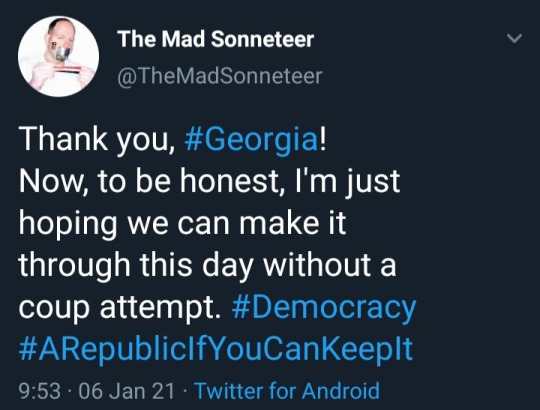
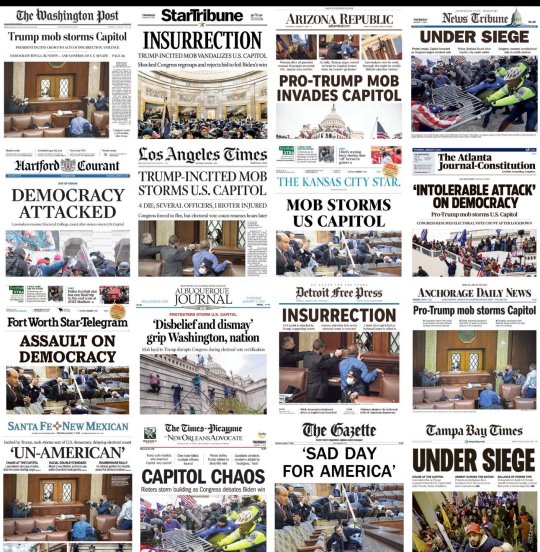
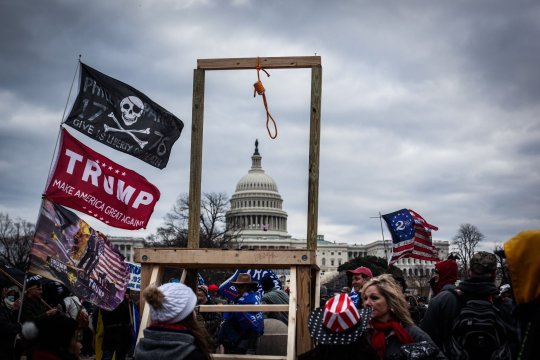

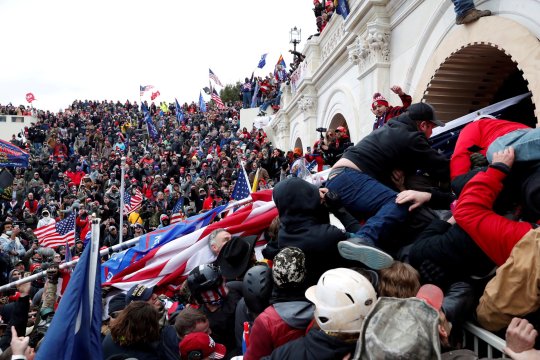

Now, the MAGA Morons and MAGA Maggots are trying to call January 6th "Entrapment Day."
#January 6#January 6th#Capitol Hill Putsch#insurrection#riot#treason#traitor#traitors#Entrapment Day#MAGA#MAGA Morons#MAGA Maggots#coup#The Mad Sonneteer#Bud Koenemund#Koenemund
59 notes
·
View notes
Photo

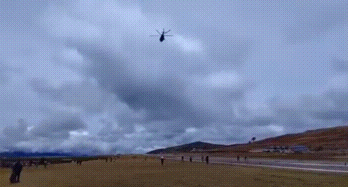
December 11, 2022 - Indigenous protesters demanding new elections and the release of President Pedro Castillo in Andahuaylas, Peru, use slings to drive off police helicopters after they occupied the local airport and set fire to the transmitter room. [video]
#peru#andahuaylas#airport#police helicopter#acab#resistance#indigenous#indigenous resistance#coup#gif#2022#slingshot#riot#police#sling
398 notes
·
View notes
Text
September 11, 1973: On the 50th Anniversary of the Coup in Chile
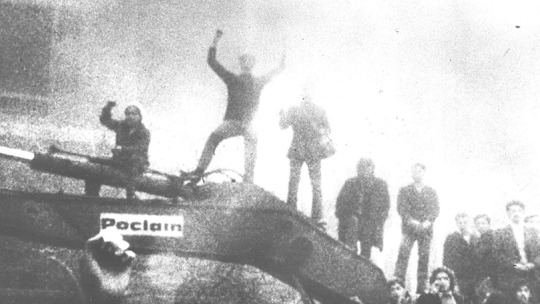
Today marks the 50th anniversary of the coup d’état in Chile, when a fascist junta led by dictator Augusto Pinochet overthrew the democratically elected socialist government of Salvador Allende. For those of us who are on the left, the story should be familiar by now: Allende had charted a ‘Chilean way to socialism' ("La vía chilena al socialismo") quite distinct from the Soviet Union and communist China, a peaceful path to socialism that was fundamentally anti-authoritarian, combining worker power with respect for civil liberties, freedom of the press, and a principled commitment to democratic process. For leftists who had become disillusioned with the Soviet drift into authoritarianism, Chile was a bright spot on an otherwise gloomy Cold War map.
What happened in Chile was one of the darkest chapters in the history of US interventionism. In August 1970, Henry Kissinger, who was then Nixon’s national security adviser, commissioned a study on the consequences of a possible Allende victory in the upcoming Chilean presidential election. Kissinger, Nixon, and the CIA—all under the spell of Cold War derangement syndrome—determined the US should pursue a policy of blocking the ascent of Allende, lest a socialist Chile generate a “domino effect” in the region.
When Allende won the presidency, the US did everything in their power to destroy his government: they meddled in Chilean elections, leveraged their control of the international financial system to destroy the economy of Chile (which they also did through an economic boycott), and sowed social chaos through sponsoring terrorism and a shutdown of the transportation sector, bringing the country to the brink of civil war. Particularly infuriating to the Americans was Allende’s nationalization of the copper mining industry, which was around 70% of Chile’s economy at the time and was controlled by US mining companies like Anaconda, Kennecott and the Cerro Corporation. When the CIA’s campaign of sabotage failed to destroy the socialist experiment in Chile, they resorted to assisting general Augusto Pinochet's plot to overthrow the democratically elected government. What followed was a gruesome campaign of repression against workers, leftists, poets, activists, students, and ordinary Chileans—stadiums were turned into concentration camps where supporters of Allende’s Popular Unity government were tortured and murdered. During Pinochet’s 17-year reign of terror, 3,200 people were executed and 40,000 people were detained, tortured, or disappeared, 1,469 of whom remain unaccounted for. Chile was then used as a laboratory for neoliberal economic policies, where the Chicago boys and their ilk tested out their terrible ideas on a population forced to live under a military dictatorship.
It shatters my heart, thinking about this history. I feel a personal attachment to Chile, not only because my partner is Chilean (his father left during the dictatorship), but because I’ve always considered Chile to be a world capital of poetry and anti-authoritarian leftism. The filmmaker Alejandro Jodorowsky asks, “In how many countries does a real poetic atmosphere exist? Without a doubt, ancient China was a land of poetry. But I think, in the 1950s in Chile, we lived poetically like in no other country in the world.” (Poetry left China long ago — oh how I wish I’d been around to witness the poetic flowering of the Tang era!) Chile has one of the greatest literary traditions of the twentieth century, producing such giants as Bolaño and Neruda, and more recently, Cecilia Vicuña and Raúl Zurita, among others.

To commemorate the 50th anniversary of the coup, the Harvard Film Archive has been screening Patricio Guzmán’s magisterial trilogy, The Battle of Chile, along with a program of Chilean cinema. I watched part I and II the last two nights and will watch part III tonight. It’s no secret that I am a huge fan of Guzmán’s work, and even quoted his beautiful film Nostalgia for the Light in the conclusion of my book Carceral Capitalism, when I wrote about the Chilean political prisoners who studied astronomy while incarcerated in the Atacama Desert. Bless Patricio Guzmán. This man has devoted his life and filmmaking career to the excavation of the Chilean soul.
Parts I and II utterly destroyed me. I left the theater last night shaken to my core, my face covered in tears.


The films are all the more remarkable when you consider it was made by a scrappy team of six people using film stock provided by the great documentarian Chris Marker. After the coup, four of the filmmakers were arrested. The footage was smuggled out of Chile and the exiled filmmakers completed the films in Cuba. Sadly, in 1974, the Pinochet regime disappeared cameraman Jorge Müller Silva, who is assumed dead.
It’s one thing to know the macro-story of what happened in Chile and quite another to see the view from the ground: the footage of the upswell of support for radical transformation, the marches, the street battles, the internal debates on the left about how to stop the fascist creep, the descent into chaos, the face of the military officer as he aims his pistol at the Argentine cameraman Leonard Hendrickson during the failed putsch of June 1973 (an ominous prelude to the September coup), the audio recordings of Allende on the morning of September 11, the bombing of Palacio de La Moneda—the military is closing in. Allende is dead. The crumbling edifice of the presidential palace becomes the rubble of revolutionary dreams—the bombs, a dirge for what was never even given a chance to live.
#Patricio Guzmán#film#Chile#history#salvador allende#socialism#marxism#coup#coup d'etat#The Battle of Chile#revolution#cinema#fascism#communism#geopolitics#political economy#Cold War#chris marker#memory#neoliberalism#capitalism#politics
97 notes
·
View notes
Photo
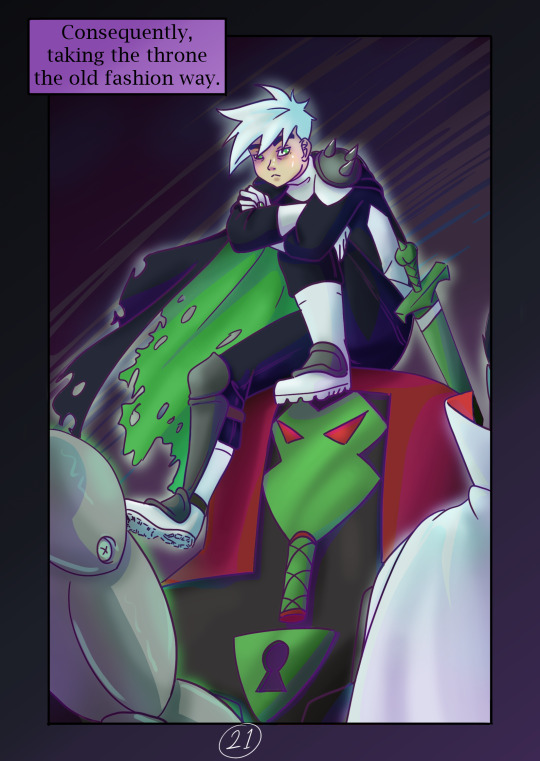
Ectoberhaunt comic 2022
The hunt for the king.
Friday: Coup
#Ectoberhaunt22#EH Chaos#Day 21#Coup#Danny Phantom#danny fenton#Ghost king au#vlad plasmius#Skulker#Sarcophagus of forever sleep#Throne#art#fanart
549 notes
·
View notes
Quote
We know now that on the day that the United States suffered the worst assault on the Capitol since the British ravaged it in 1814, Trump tried to grab the steering wheel from a secret service agent to turn his presidential SUV in the direction of the violent mob so he could join them. We know that when he exhorted his followers to march on the Capitol and “fight like hell” he was aware that many of them were armed with guns and wearing body armor.
We know from Thursday night that when his close aides pleaded with him to call off the attack, he refused, spending 187 minutes watching events unfold on TV in the White House dining room while swatting away increasingly desperate pleas for him to act until it was clear that his hopes of violently overthrowing the election had faded.
To those who track anti-democratic movements there is a chilling familiarity to this rich evocation of a president descending into an abyss of fantasy, fury and possible illegality. “The picture that the hearings depict is of a coup leader,” said the Harvard political scientist Steven Levitsky. “This is a guy who was unwilling to accept defeat and was prepared to use virtually any means to try to stay illegally in power.”
‘US democracy will not survive for long’: how January 6 hearings plot a roadmap to autocracy |
776 notes
·
View notes
Text
Yale history professor Timothy Snyder noted: “That Trump will be tried for his coup attempt is not a violation of his rights. It is a fulfillment of his rights. It is the grace of the American republic. In other systems, when your coup attempt fails, what follows is not a trial.”
65 notes
·
View notes
Text
Fuck it. Shit is happening super fast. I don’t know how real some of them. There’s a tweet saying wagners already reached outskirts of Moscow.

72 notes
·
View notes
